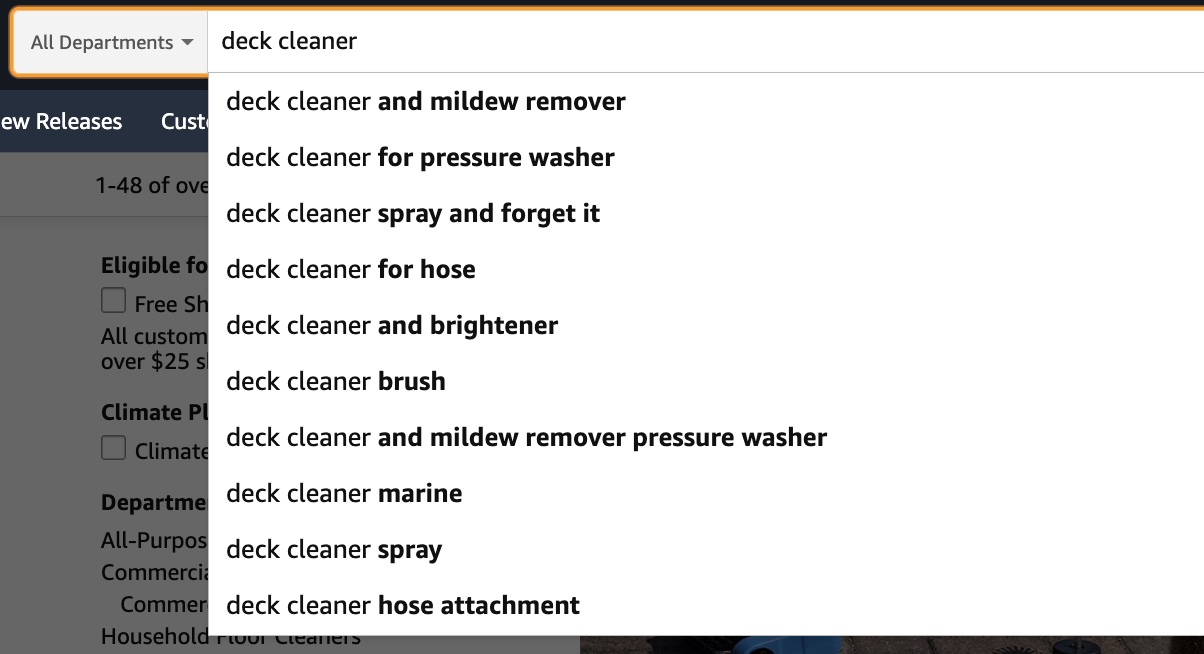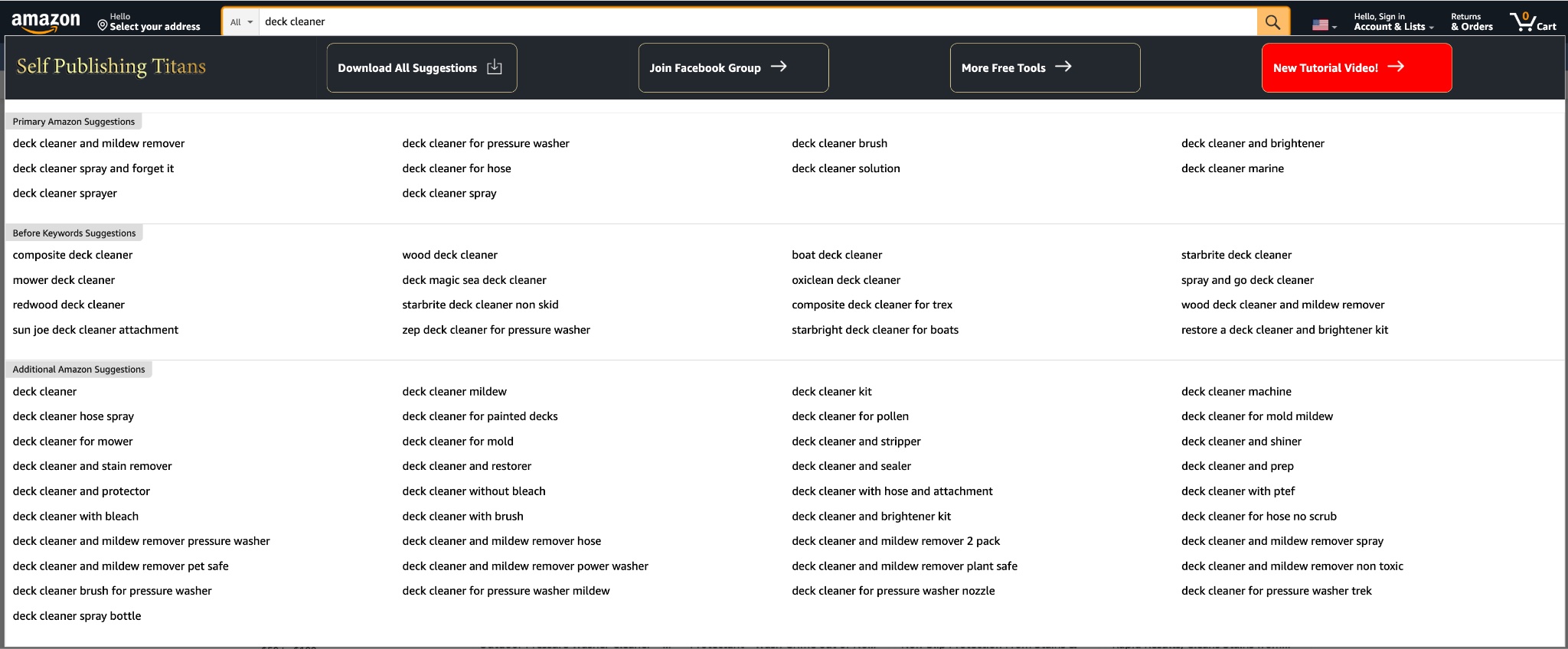Amazon’s search engine is the world’s largest for product queries. It provides essential insights into the keywords consumers use for both research and commercial intent.
But Amazon doesn’t disclose volume or pay-per-click ad info. Hence merchants are on their own for uncovering consumers’ search terms. The following keyword tools can help with rankings on Amazon and optimizing your own site for Google.
Amazon Autosuggest
Amazon autosuggest displays words and phrases as searchers type a query. Autosuggest is similar to Google autocomplete. The more users type on a single search, the narrower the suggestions. All of those suggestions are potential keywords.
Amazon does not explain how the keywords are ordered. We can only assume the more popular keywords appear first.
Amazon personalizes autosuggest to your previous searches. So sign out of your account to discover keyword suggestions your target customers will likely see.
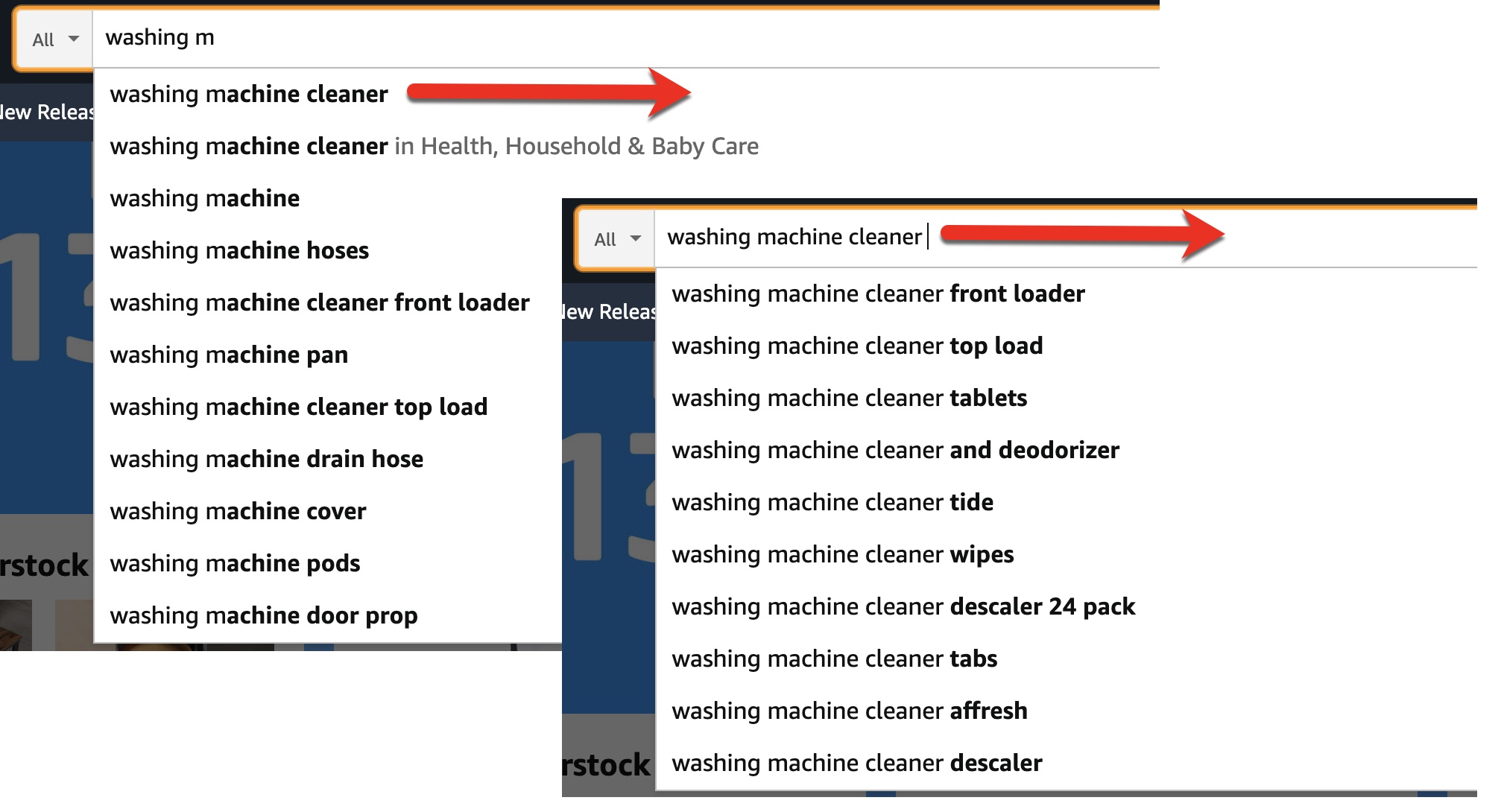
Amazon autosuggest displays words and phrases as searchers type a query. The more a user types on a single search, the narrower the suggestions, such as this example for “washing machine cleaner.” Click image to enlarge.
Amazon Search Suggestion Expander
This free Google Chrome extension expands on Amazon’s autosuggest by adding:
- “Before” keywords, i.e., suggestions generated by adding a word in front of your query.
- “Additional” suggestions, i.e., keywords from typing longer phrases.
Here are Amazon’s suggestions for “deck cleaner.”
And here’s what you get with the extension installed. You can also download the suggestions to an Excel file.
Keywordtool.io
Keywordtool.io is a research platform that uses multiple data sources, including Amazon. The tool overlays Amazon’s autosuggest keywords with data from Google Ads, such as cost-per-click, search volume, and competition.
The best thing about this tool is researching keywords based on a category to explore buying journeys. For example, one could type “washing” and choose the “Baby” category for keyword suggestions such as “washing baby hair shield” and “a washing machine toy.”
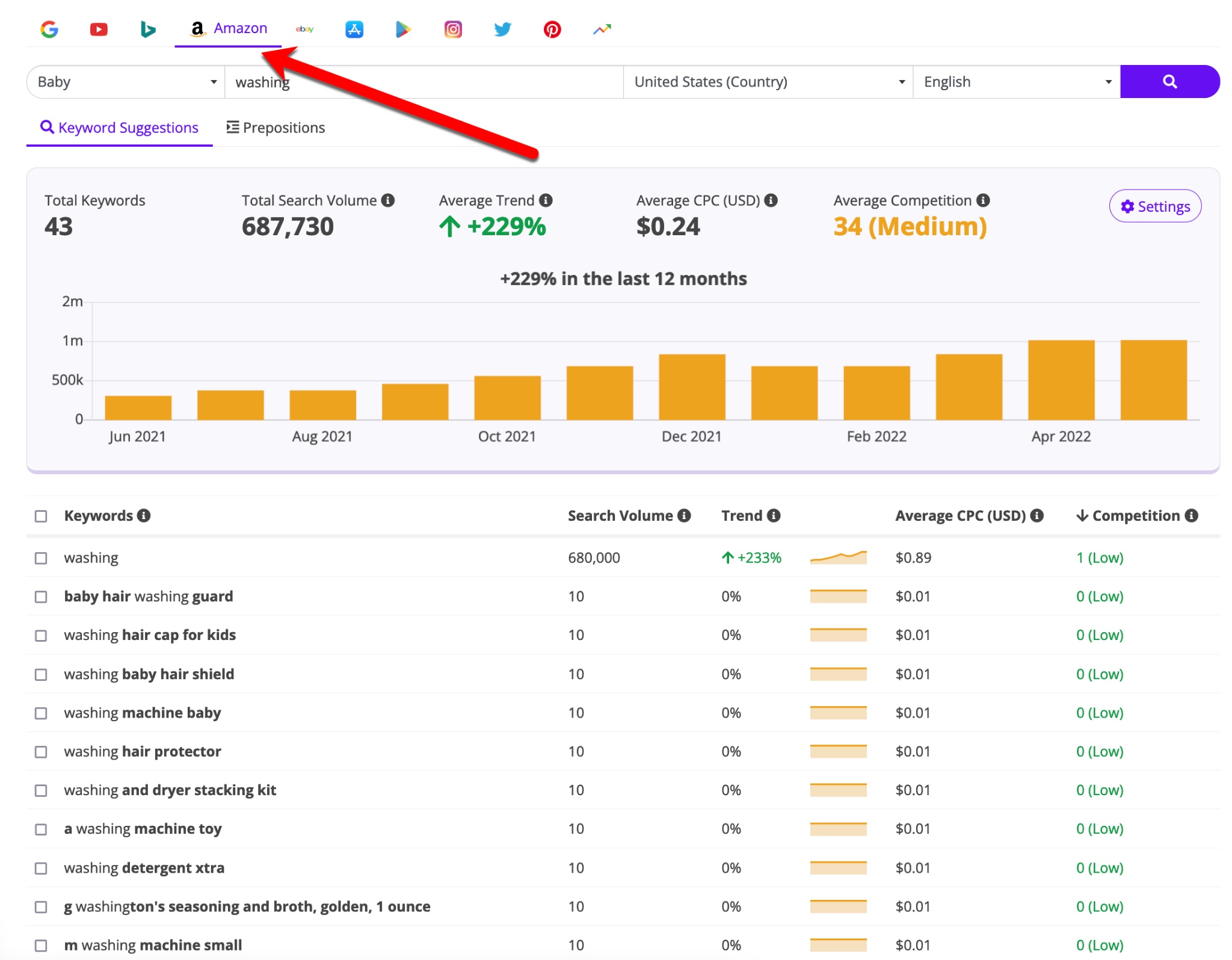
Keywordtool.io overlays Amazon’s autosuggest keywords with data from Google Ads, such as cost-per-click, search volume, and competition. This example shows the initial keyword “washing.” Click image to enlarge.
The tool is also helpful for generating product ideas and opportunities. Type your keyword in a category, and the tool will provide actual, related search terms on Amazon.
Use filters to group keywords by a common modifier or to exclude.
Keywordtool.io costs $69 a month.
MerchantWords
MerchantWords is the only major keyword tool that exclusively targets Amazon sellers. As such, the tool reports:
- Amazon search volume. MerchantWords calculates volume using its own algorithm.
- Dominant categories for the products that match those searches, as shown below.
- Seasonality, if any.
- Trend. Searches for a keyword over the past months.
Prices for MerchantWords start at $79 per month.
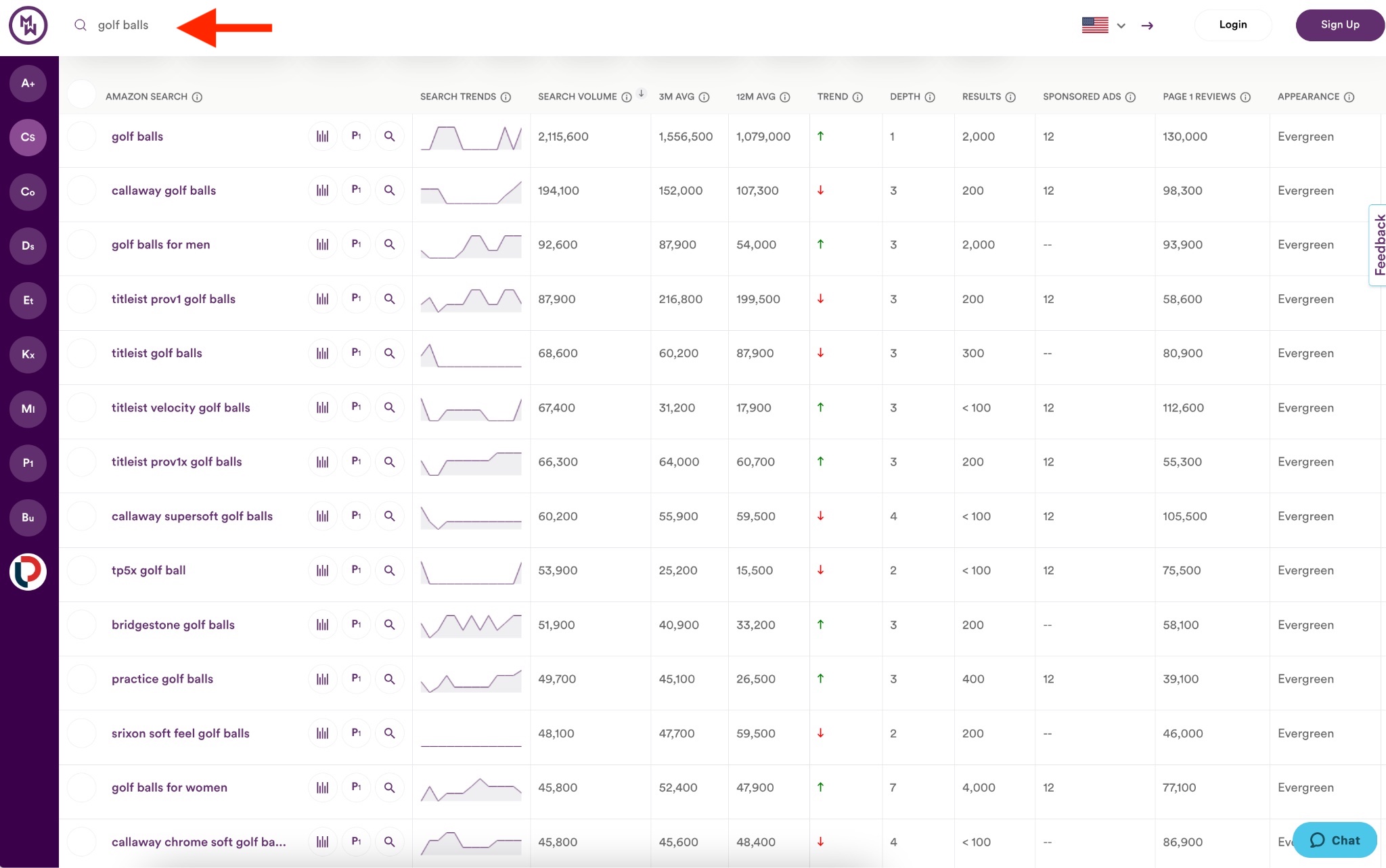
MerchantWords is the only major keyword tool that exclusively targets Amazon sellers, reporting keyword search volume, dominant categories, and trends. This example is for the keyword “golf balls.” Click image to enlarge.
Amazon Search
Amazon’s search, like Google’s, offers many clues as to how consumers query your core topic. Pay close attention on Amazon to product listings, related searches, and departments.
Product listings. Reviewing product listings provides insight into keywords and modifiers. For example, searching for “deck cleaner” produces modifiers such as “non-skid,” “multi-purpose,” “outdoor cleaner,” “stain remover,” and “protectant.”
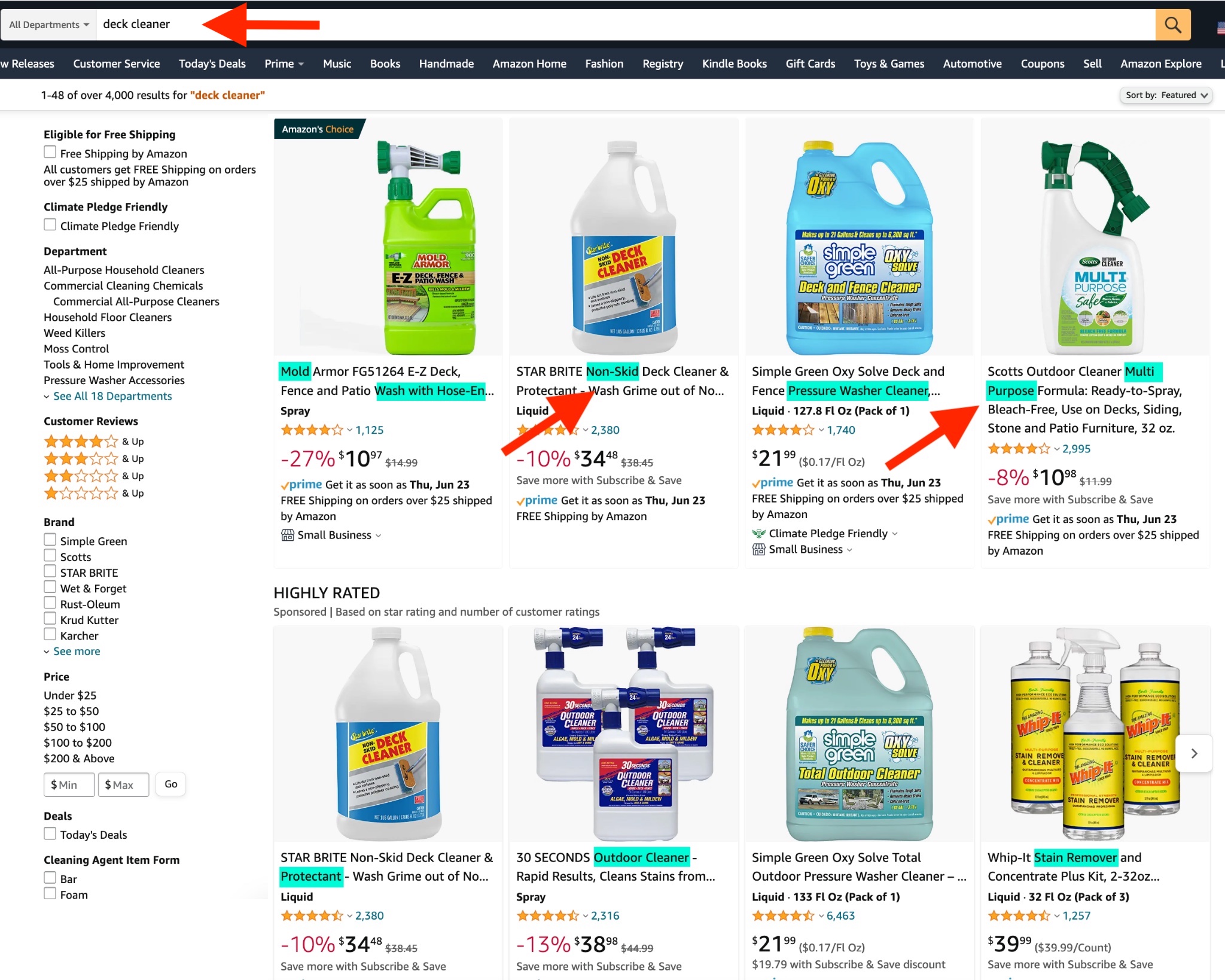
Reviewing product listings provides insight into keywords and modifiers. This example for the keyword “deck cleaner” produces modifiers such as “Non-skid” and “Multi-Purpose.” Click image to enlarge.
—
Related searches. Amazon generates a list of “Related Searches” below the initial results — from, presumably, actual queries in similar buying journeys. Include the related terms in your product names and categories.

Amazon generates a list of “Related Searches” from, presumably, actual queries in similar buying journeys. This example show related search terms for “deck cleaner”: “deck cleaner for pressure washer,” “deck brush,” and more. Click image to enlarge.
—
Departments. Keep an eye on the “Departments” within Amazon that include products using your keywords. Consider structuring your own site similarly, as “Departments” could equate to categories.
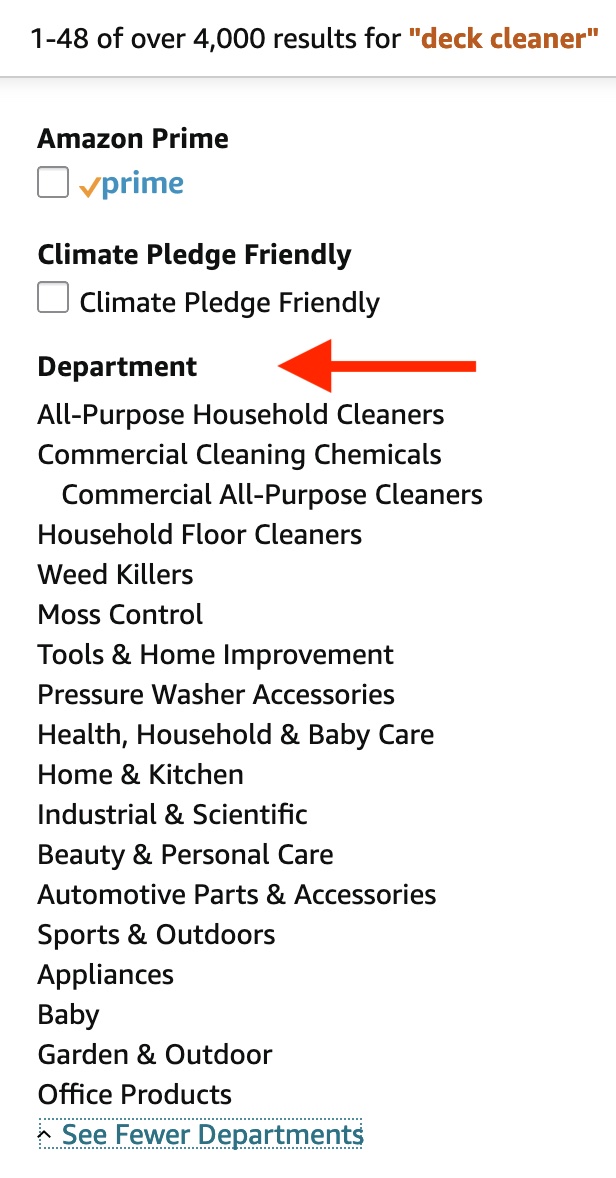
“Departments” within Amazon equate to categories and provide ideas to merchants for structuring their own sites. This example shows the Departments with products associated with “deck cleaner.”
Bottom Line
Amazon doesn’t disclose search volume or cost-per-click. Thus merchants must improvise using Amazon’s tools and those of third parties, resulting in informed decisions for how consumers search for products — on Amazon and elsewhere.

